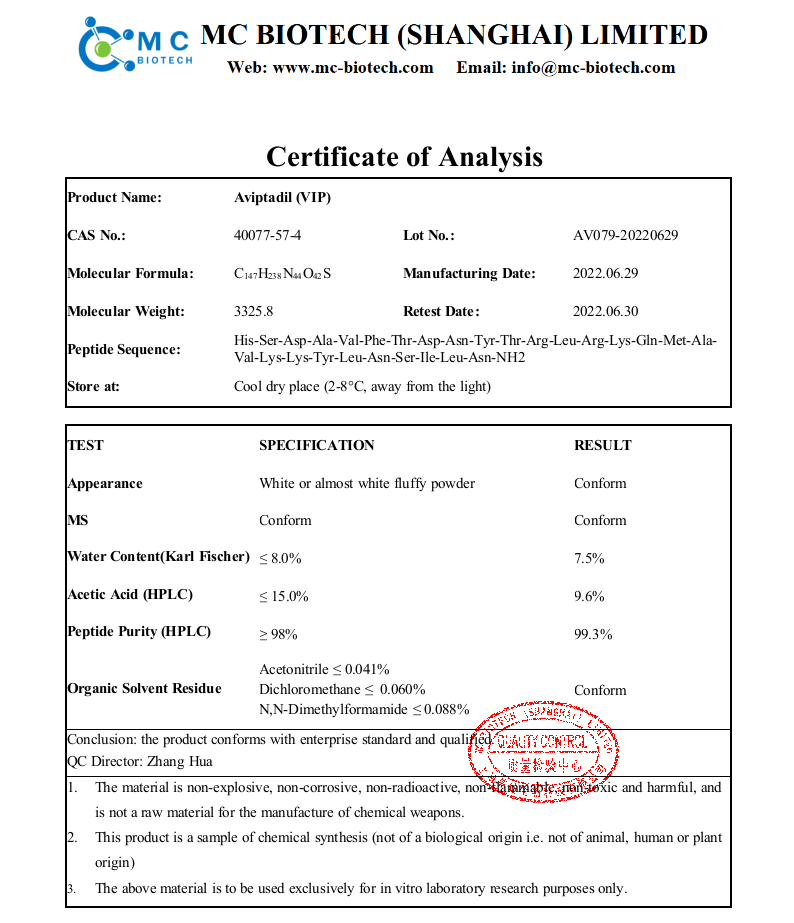Research shows that VIP can help to reduce inflammation throughout the body, but that it is particularly useful in the setting of neurodegenerative disease, pulmonary fibrosis, inflammatory bowel disease, and cardiac fibrosis.

Name: Aviptadil; VIP
CAS No.: 40077-57-4
Peptide Sequence: His-Ser-Asp-Ala-Val-Phe-Thr-Asp-Asn-Tyr-Thr-Arg-Leu-Arg-Lys-Gln-Met-Ala-Val-Lys-Lys-Tyr-Leu-Asn-Ser-Ile-Leu-Asn-NH2
Molecular Formula: C147H238N44O42S
Molecular Weight: 3325.8
Appearance: White Lyophilized powder

Vasoactive intestinal peptide (VIP, vasoactive intestinal polypeptide, PHM27) is a short peptide hormone made in the gut, pancreas, and brain of most vertebrate animals including humans. VIP binds to class II G protein-coupled receptors and is known to
increase the breakdown of glycogen in liver and muscle,
lower blood pressure,
relax smooth muscle throughout the GI tract,
stimulate contraction of cardiac muscle (by boosting both heart rate and strength of contractions),
stimulate the secretion of water in various areas of the GI tract,
affect vaginal lubrication,
regulate prolactin release,
protect cartilage,
protect neurons against ischemia and oxidative stress,
affect autonomic nerve function, and
help to synchronize the central nervous system (specifically neurons in the suprachiasmatic nucleus) with light cues for regulating circadian rhythm.
VIP has long been an interest in research for all of the reasons above and more. There is a great deal of scientific literature on this particular peptide, making it nearly impossible to cover all of the many facets of VIP research. Below is a summary of some of the high points, including the most important aspect of VIP research – the finding that it VIP can reduce inflammation and fibrosis in a number of different organs.
Product use: This product is only for research chemicals.
Contact: Sophia Wang
Phone:
E-mail: info@mc-biotech.com
Add: 2nd Floor,ECNU Science Park,No.1006 Jinshajiang Road, Putuo District, Shanghai